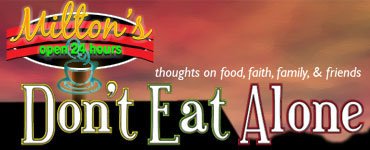celebrate the poet
I have been in poetry mode all this week, so it seems only fitting that I should discover, here in the dregs of this day, that today is W. S. Merwin's birthday. In honor of his celebrating another year on the planet, I offer two or three of his poems. The first two I found reading the transcript of an interview with Bill Moyers.
Rain LightI know he packs his poems with so much that it is perhaps a bit unfair to line them up one after the other, but you can come back and read them again.
All day the stars watch from long ago
my mother said I am going now
when you are alone you will be all right
whether or not you know you will know
look at the old house in the dawn rain
all the flowers are forms of water
the sun reminds them through a white cloud
touches the patchwork spread on the hill
the washed colors of the afterlife
that lived there long before you were born
see how they wake without a question
even though the whole world is burning
Yesterday
My friend says I was not a good son
you understand
I say yes I understandhe says I did not go
to see my parents very often you know
and I say yes I knoweven when I was living in the same city he says
maybe I would go there once
a month or maybe even less
I say oh yeshe says the last time I went to see my father
I say the last time I saw my fatherhe says the last time I saw my father
he was asking me about my life
how I was making out and he
went into the next room
to get something to give meoh I say
feeling again the cold
of my father's hand the last timehe says and my father turned
in the doorway and saw me
look at my wristwatch and he
said you know I would like you to stay
and talk with meoh yes I say
but if you are busy he said
I don't want you to feel that you
have to
just because I'm hereI say nothing
he says my father
said maybe
you have important work you are doing
or maybe you should be seeing
somebody I don't want to keep youI look out the window
my friend is older than I am
he says and I told my father it was so
and I got up and left him then
you knowthough there was nowhere I had to go
and nothing I had to do
The last poem I offer as my part in celebrating this wonderful poet is one I have posted before but keep coming back to myself.
Thanks
Listen
with the night falling we are saying thank you
we are stopping on the bridges to bow from the railings
we are running out of the glass rooms
with our mouths full of food to look at the sky
and say thank you
we are standing by the water thanking it
smiling by the windows looking out
in our directions
back from a series of hospitals back from a mugging
after funerals we are saying thank you
after the news of the dead
whether or not we knew them we are saying thank you
over telephones we are saying thank you
in doorways and in the backs of cars and in elevators
remembering wars and the police at the door
and the beatings on stairs we are saying thank you
in the banks we are saying thank you
in the faces of the officials and the rich
and of all who will never change
we go on saying thank you thank you
with the animals dying around us
our lost feelings we are saying thank you
with the forests falling faster than the minutes
of our lives we are saying thank you
with the words going out like cells of a brain
with the cities growing over us
we are saying thank you faster and faster
with nobody listening we are saying thank you
we are saying thank you and waving
dark though it is
Tonight, I am saying thank you.
Happy birthday, Mr. Merwin, and thank you.
Peace,
Milton






